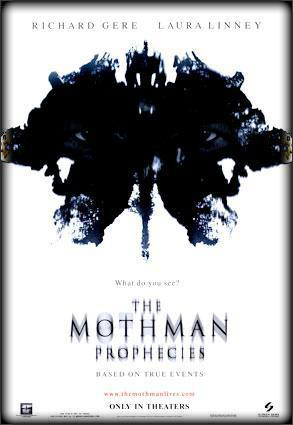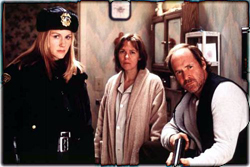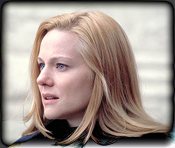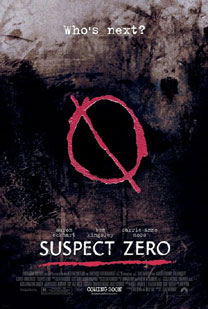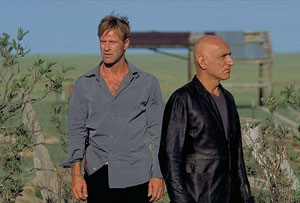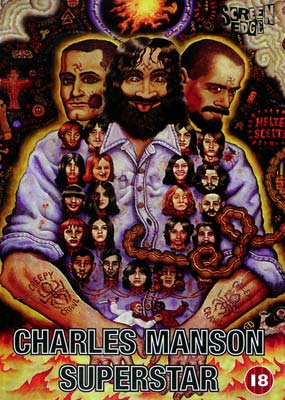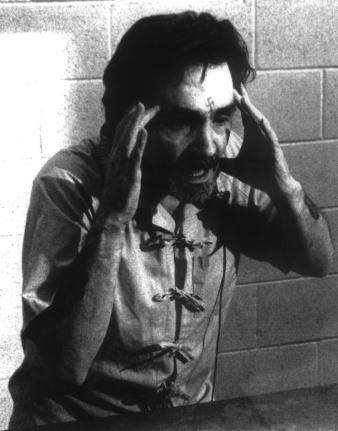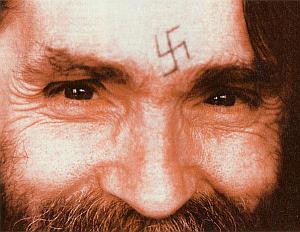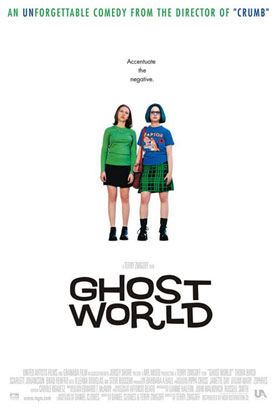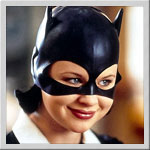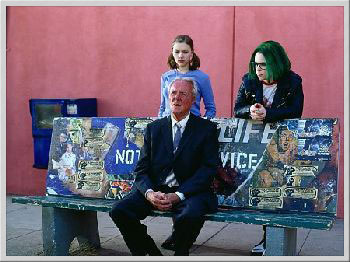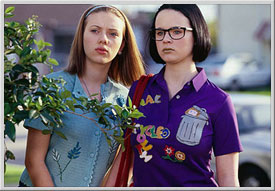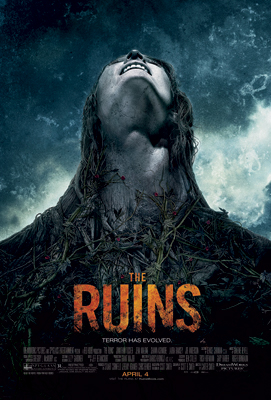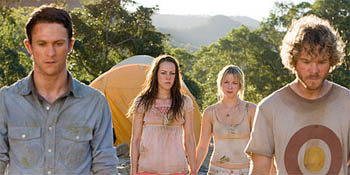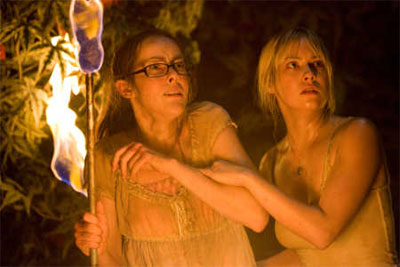Charles Manson, Superstar 1989
IMDB Details
Charles Manson, Superstar
Welcome to my first documentary review. I’m not sure if I should proceed any differently so I’ve decided to just follow the same non-format I’ve been using.
The first thing that I should make clear is that I am addicted to this case. I’ll never forget seeing television coverage of the case and the trials with my mom. When I would ask who the man was she would just say that he’s a bad man. She was fascinated and horrified by the whole thing and it scared her enough to make my dad put additional locks on the doors. All of that industry just made me more curious and ever since then I think I’ve read everything available on the case, including the trial transcripts, and have watched all available media. To this day the case still fascinates me because there is a definite undercurrent of causation that was completely ignored in making a public case against Manson.
For those who are unfamiliar with the basics, I’ll state the brief facts of the case. On August 9, 1969 five people were brutally murdered in the Hollywood hills. One of the victims was a rising star in the movie industry,
Sharon Tate. Tate was married to director
Roman Polanski and the couple was expecting their first child. Tate, in fact, was eight months pregnant when she was murdered. Tate was at home with three friends who shared her fate that evening. The final victim that night was a friend of the groundskeeper who was in the wrong place at the wrong time. The next night, August 10, 1969, there were two more murders, grocer Leno LaBianca and his wife Rosemary. All 7 murders were similar in that they were brutal, they involved multiple stabbings and both scenes had messages written in the victim’s blood. Okay enough of that, for more details on the crime itself
read this page flawed as it is in assigning motive to the murders.
The point and the premise of Charles Manson, Superstar is to allow the public to see the man behind the legend. In the trial the prosecutor, Vincent Bugliosi, painted a picture of a man who was insane and who used drugs and sex to brainwash the people living communally with him in a group known as “The Family.”
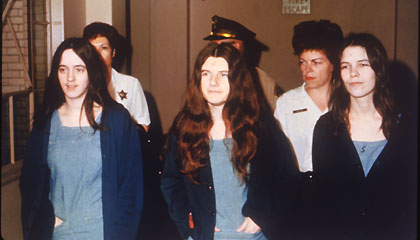
|
Popular wisdom then says that Manson orchestrated and ordered these murders under the new world concept created by the family called Helter Skelter whereupon the blacks would rise up against the whites and murder them all and take over the world. Supposedly, at this point the blacks would realize that they were unfit to manage the world and would be starving for leadership. At this point Manson and his people who had been hiding in the desert would establish their dominance and take leadership of the world. The murders say the prosecutor, were supposed to make it look like the blacks had started the war and they were supposed to be the catalyst of this grand Helter Skelter plot. Bugliosi used this idea to secure a conspiracy charge against Charles Manson because he was not present at any of the murders for which he is serving prison time.
The above facts of the case were always disputed by Manson in particular and the members of the Family who were not simply interested in obtaining their own releases from prison. Manson himself thinks that he has yet to have a fair trial as mid stream into it President Nixon declared to the national news that Manson was guilty.
As such, Manson stated that he believed that he was being railroaded as no man could receive a fair trial when the president of the United States says someone is guilty.
The documentary itself is very well done. It is shot at San Quentin state prison and the interviewer, Nikolas Shreck, does an excellent job in getting Manson to speak about things that are not really existent in the world of the Helter Skelter myth. The video instead focuses on Manson’s early connections to Haight Ashbury in San Francisco, Susan Atkins and her then boss Anton LaVey who
was the founder of the Satanic church, The Process Church, Manson’s devotion to Scientology and Manson’s mafia connections which may have lead him into picking LaBianca as a victim as LaBianca was an avid gambler who was heavily in debt.
The conversations in this video in particular really turned me on to how tumultuous a time the late 1960’s were in America. Manson mentions a wide array of folks including members of The Weather Underground who set off bombs in public buildings in an attempt to overthrow the government, the SLA, the Black Panthers, Abi Hoffman and many, many others. The material is great fodder for research into all kinds of things that history books try to suppress.
In my years of research on this subject I don’t think I’ve found a better depiction of who Charles Manson is and how he became America’s nightmare.
This documentary truly underscores many of the underlying causes of the formation of Manson’s thought which served as the catalyst of the events of the summer of
1969.
